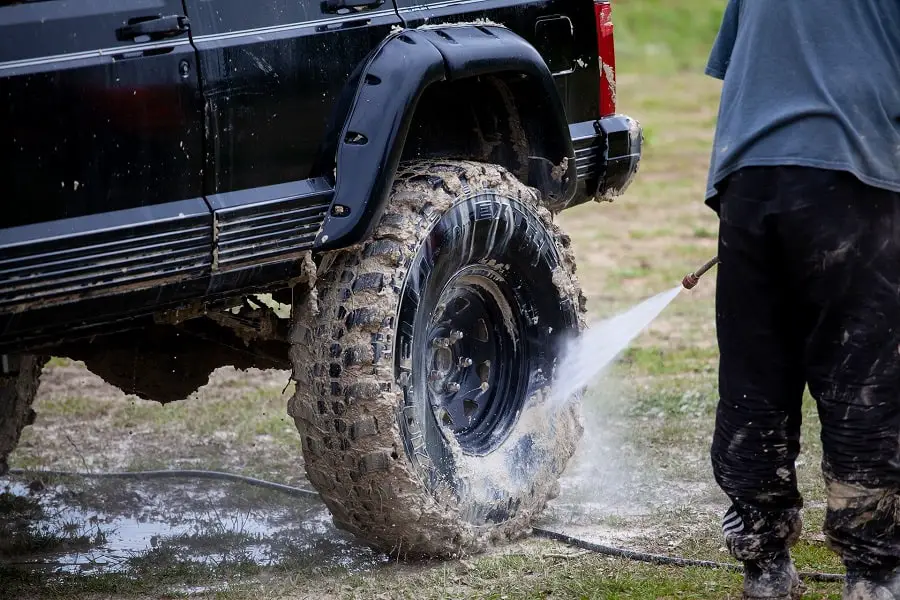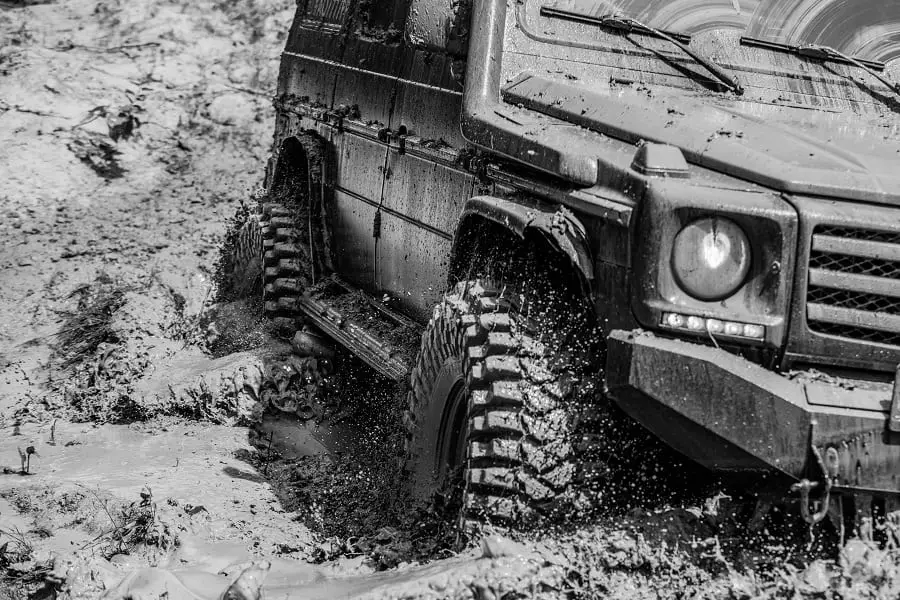
Off-roading is an adventure that can be enjoyed by beginners and experts alike. Off-road vehicles can access terrain that other cars cannot, so they’re perfect for exploring different areas in the world.
This article will give you some tips and tricks to help get you started!
Beginners Guide to Off-roading: Tips and Tricks
The fact that you’ve just purchased a new 4X4 car isn’t enough to wow your neighbors. Off-roading properly might be a challenge, but with this instruction, you won’t have to struggle.
To Begin, Kudos on Your Brand-New Off-Roader!
As wonderful as this time will be, it will also be a period of exhausting vehicle washes. Even so, it’ll be worth it.
Knowledge is your best friend when it comes to off-roading. If you’re going to play this game, you will have to be prepared for anything.
You and your off-road vehicle will get into some sticky situations, so familiarize yourself with the surroundings and the car you’ll be using. When it comes to off-roading, never go it alone.
Take another driver with you if you get into a situation where you need assistance and can’t get out on your own. Let’s get down to business now that you’re psychologically prepared.
What You’ll Need to Go Off-Roading?
Whether your vehicle is old or new, two-wheel or four-wheel drive, here are some basics to have before hitting the trails:
Off-RoadTires
Some people believe that all-wheel drive can magically fix wheel slips in the snow. According to some, using a transfer case or locking differential will compensate for any off-road tire inefficiencies.
If you’re going to be driving on mud, gravel, or even sand in the summer, you’re going to want to make sure your tires are in good shape.
There are a variety of tires that can handle a wide range of conditions. Mud-terrain (M/T) tires make some road noise, but they may also help you go through the mud, snow, or sand with ease.
This type of tire is ideal for those who plan on traversing a wide variety of terrains but aren’t planning on doing anything incredibly demanding.
Fit and rotate easily in your vehicle’s wheel wells when choosing a tire size. To avoid a loss of power and a decrease in fuel economy, it is necessary to re-gearing your axles or transmission if your tires are too big.
Equipment for Off-Road Recovery
While a good set of tires will keep you safe, you’ll be grateful if you get trapped that you have some recovery gear. The loose ground may be made easier to navigate with the aid of Recovery Boards traction pads.
Recovery points can be used to get yourself out of a jam by attaching to another vehicle. Tools like a jack, shovel, gloves, and a headlamp can also be used.
There are a few ways to be creative with winches but bear in mind that they are heavy, expensive, and unnecessary for the average off-roader.
Lights for Off-Roading at Night
Everyone has seen the weekend warriors armed to the teeth with an array of LED, halogen, and HID lights pointing in all directions. They’re everywhere. Unless you’ve got a unique use case, it doesn’t mean it has to be you.
All you need is a set of high-quality headlights with a wide enough beam to be seen well into the darkness. It’s simple to add auxiliary driving lights to your car’s front bumper and link them to a button on the dashboard if you’re having trouble with your original headlights.
Install a pair of spot/searchlights near your door mirrors to illuminate the left and right sides of a way ahead if you’d want to go the extra mile. LED light bars look great and can be helpful, but if they’re mounted incorrectly (think of heavy glare off your hood), they could cause issues, so be sure that’s what you want before you buy any. LED light bars.
Emergency Supplies
What are you going to do now that you’ve exhausted your tires and your recovery gear? Preparation is vital in the event of an emergency.
Assuming you’ve packed adequate food and water for a couple of days, you should always have some supplies on hand in case of emergencies. Toss on a few layers of warm, water-resistant apparel as well (yes, even if the weather report is favorable).
Seatbelt cutters and glass breakers should be readily available in the event of a rollover or other emergency. Of course, you’ll want a first-aid kit on hand.
A long-distance radio with a backup battery is a good option if you don’t want to wait to be located.
Know Your Vehicle
Depending on your car, the driver’s seat may have access to a plethora of switches, buttons, and levers, which begs the question, “What do you activate, and when?”
Traction Control
If your vehicle was manufactured within the previous decade, it most likely includes some traction control, whether it be two-wheel drive, all-wheel drive, or four-wheel drive.
The most basic form of this is a simple on/ off switch. Still, cars engineered to handle different climates and terrain will have many configurations that modify throttle mapping, braking, and power distribution to prevent tire sliding and overcome obstacles.
If your car has an on/off switch, your best chance is to turn it off when you’re off-road; this will prevent the vehicle from deploying the brakes at the first sign of traction loss. If your system has numerous options, do some research using YouTube videos, forums, or your user manual to determine which setting is appropriate in certain circumstances.
4WD Low vs. 4WD High
Transfer cases in 4WD vehicles have two speeds: 4WD Hi and 4WD Lo. Knowing how and when to convert between these speeds is essential. The majority of cars convert using an additional lever in the center console. However, there are a few that use a knob positioned on the dashboard.
For vehicles with permanent 4WD (and hence no 2WD setting), you’ll want to maintain it in 4WD mode at all times. You’ll need to keep up your momentum whether you’re going to be driving on the highway or through rough terrain (i.e., mud, sand, or snow).

As a result, 4WD Low is used when maximum torque is required at low speeds (i.e., rock crawling). Selecting 4 Lo means you’ll need to choose the appropriate gear; the lower the load, the more torque is available.
Differentials Lock
A two-speed transfer case (4WD) system will get you far further than an all-wheel-drive or two-wheel-drive layout, but locking differentials will get you past almost anything. Each wheel on an axle spins independently with an open (not locked) differential, which means that if one tire loses traction and turns hopelessly, you lose all of the power that would otherwise flow to that wheel.
By locking a differential (usually by a button or switch located on the dashboard), you bind the two wheels together so that if one becomes loose, power is routed to the wheel with traction. Power plus traction equals progress.
Tips for Driving Off-Road
On one end of the spectrum are those who believe that since they don’t have 4WD, they don’t belong off-road, and on the other are people who attempt to rock crawl in a Toyota Prius (don’t roll your eyes – I’ve seen it). But there is a happy middle.
Even if you purchased a two-wheel-drive car with decent ground clearance, correct off-roading methods, and equipment (see above) will get you very far. If you drive a Prius, though, you should locate a friend who owns a truck.
Keep Your Limits in Mind and Bring a Friend
These are two distinct bits of counsel, but they represent the most important words of wisdom we can provide when combined. To begin, keep in mind that if you push yourself too far and do damage to your car or yourself, you won’t be able to go off-road for a time.
Even if you’ve made your way down a route only to come upon a barrier you’re not comfortable with, it’s preferable to turn around than to end yourself in a dangerous and costly situation. It is also where your companion comes in.
While you can make a stupid decision on your own, you are less likely to do so when someone else (wise) weighs in.
If you both decide to go for it, your companion can also act as a spotter, securely guiding you over or past a barrier. And, if this friend has their car, they can either pull yours out of danger or pull you out of an overturned or otherwise damaged vehicle.
Airing Out
Tread may be found not just in the places you’d think but also on the sidewalls of each tire if your vehicle is capable of going off-road (called biting edges).
Despite appearances, it’s not a prank. Inflating each of your tires to between 20 and 25 psi before going off-road will enhance grip. You’ll be able to put more of your tire on the ground as a consequence.
With less air in the tire, a tire’s shape can change based on its surface, resulting in a better grip. Pebbles or dirt can be pushed into the tire’s grooves, causing the car to move forward.
To avoid sinking into the muck or snow, you should air out your tires before driving. Keep your tires properly inflated when you’re done off-roading, so you don’t waste petrol or, worse, detach them from their rims.
Examine the Depth
Even if you’ve gone to the bother of attaching a snorkel to your car, it doesn’t guarantee you’ll be able to navigate any body of water magically. If you go too deep or into a fast-moving current, you risk flooding your automobile or getting swept downstream (potentially upside down).
Check the water depth at the deepest point to ensure you aren’t about to plunge into a calamity.

